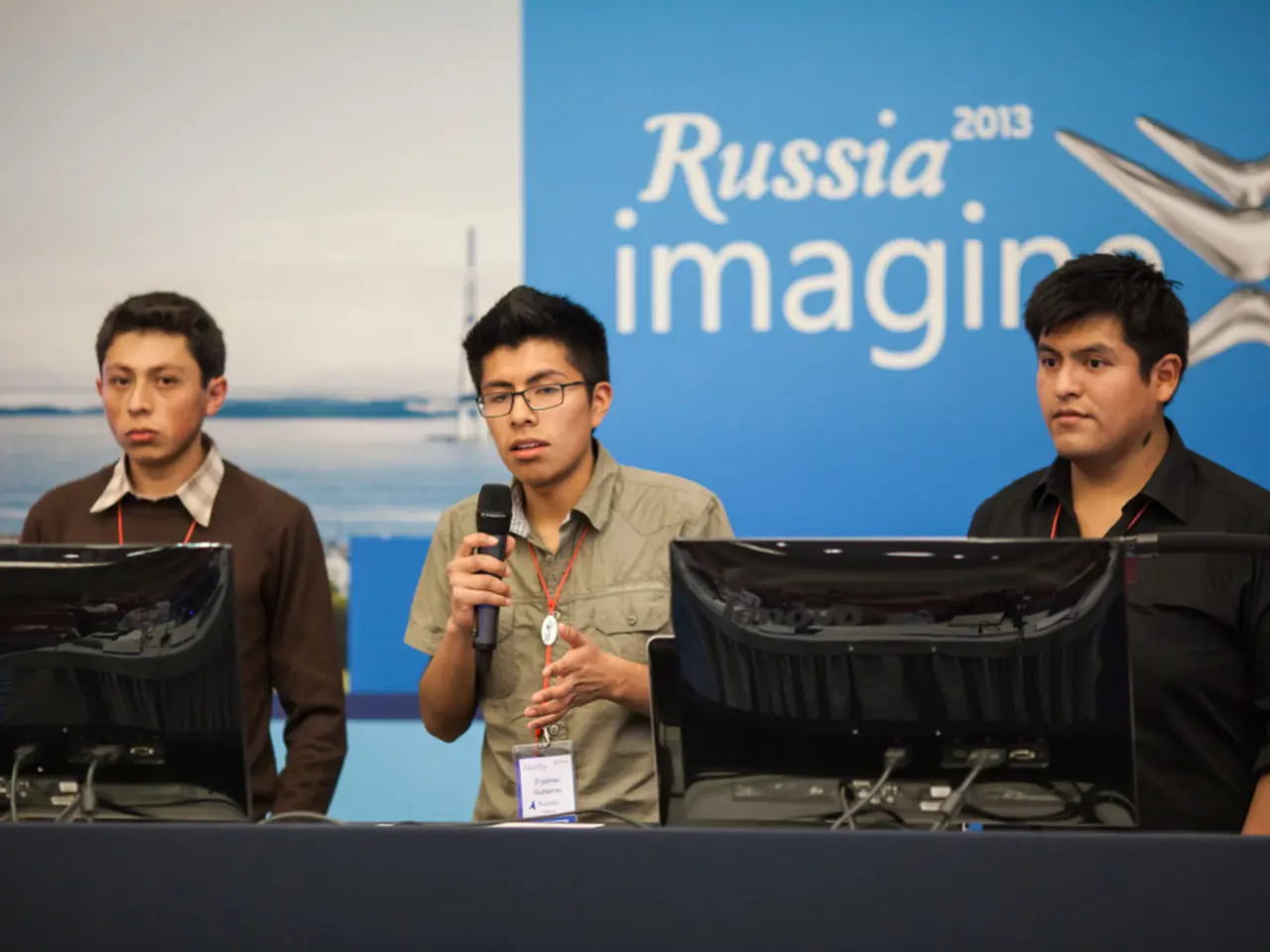Looming US tariff truce deadline raises alarms in Chinese state media regarding Nvidia semiconductor chips.
In the ongoing U.S.-China trade negotiations, a significant point of discussion is the relaxation of export controls on high-bandwidth memory (HBM) chips [1][4][5]. These chips are crucial components for advanced AI processors, and China seeks to reduce the limitations imposed on its tech firms, such as Huawei and SMIC [1][5].
The U.S. has previously imposed export controls on advanced HBM chips to restrict China’s access, a policy that has continued through successive administrations and intensified under Trump, who implemented these restrictions using rapid “is-informed” letters rather than regular regulatory processes [2].
One of the chips at the centre of this dispute is Nvidia's H20 chip. Despite being designed to comply with export controls, it was banned in April 2021 as it was deemed “too good” for export to China [2]. However, last month, the White House changed course, and Nvidia resumed sales of the H20 chip to China [6].
China's cyberspace regulator has raised concerns about the H20 chip, summoning Nvidia over security issues related to "tracking and positioning" and "remote shutdown" capabilities [7]. Chinese authorities remain skeptical about U.S. exports of these chips, questioning their security and technological claims [1][3].
In response to these concerns, Nvidia has reiterated that its chips do not have back doors, spyware, or kill switches [8]. The U.S. Department of Commerce has started issuing some licenses to supply these chips, indicating a selective loosening but overall controls remain strict due to national security concerns [3].
China is using the demand for eased HBM export controls as a bargaining chip in broader trade negotiations, highlighting the chips’ strategic importance given their role in AI hardware [3][4]. Chinese officials have told experts in Washington that Beijing wants the Trump administration to relax export restrictions on HBM chips [9].
A report suggests that China wants the U.S. to ease export controls on HBM chips as part of a trade deal ahead of a possible summit between President Trump and Chinese leader Xi Jinping [10]. However, U.S. authorities remain cautious due to security risks and geopolitical competition [1][3][4].
In conclusion, while export controls on HBM chips remain in place and enforcement has been tightened recently, China is seeking to ease these restrictions through ongoing trade negotiations. However, U.S. authorities remain cautious due to security risks and geopolitical competition. The standoff could potentially push China to speed up its own innovation in the chip-making sector.
References:
- The Information
- Reuters
- Bloomberg
- South China Morning Post
- CNN
- Reuters
- Reuters
- Nvidia Blog
- Axios
- South China Morning Post
- The ongoing U.S.-China trade negotiations have China pushing for the relaxation of export controls on high-bandwidth memory (HBM) chips, which are critical components for advanced AI processors, such as those manufactured by Huawei and SMIC.
- Amidst concerns about security risks and geopolitical competition, China is using the demand for eased HBM export controls as a bargaining chip in broader trade negotiations, highlighting their strategic importance given their role in AI hardware.




